Do you feel constantly tired and lacking energy? Could be you've got a B12 deficiency! Vitamin B12 is a crucial nutrient that plays a significant role in making healthy blood cells, maintaining your body's energy levels, and for brain function. However, it can be hard to get enough of it from your diet leading to B12 deficiency, especially in strict vegan and plant-based diets. Curious about how you can optimize your B12 and improve your health? Keep reading!

What is vitamin B12?
In this post, I explore vitamin B12 deficiency, the different types of B12, when supplementation is essential, and gene mutations that impact B12 absorption.
Vitamin B12 is a water-soluble vitamin and plays essential roles in the body, including the formation of red blood cells, DNA synthesis, and nerve function.
Naturally present in animal-based foods like meat, fish, and dairy, it's also in some algae and mushrooms. You can also obtain B12 through supplements or fortified foods.
Unlike other vitamin Bs, B12 is stored mainly in the liver.
Although vitamin B12 is found in animal foods, it is not synthesized by plants or animals. Animals need cobalt (a mineral) for the synthesis of B12.
In the case of animals, only bacteria in the gut of both ruminants and humans can make naturally active vitamin B12.
Animals store the B12 in their tissues, and that's how it's passed along the food chain.
Your gut microbiome synthesizes B12. However, because B12 is made in the large intestines and should be absorbed in the small intestine, we, unfortunately, do not have the receptors necessary for absorbing it well.
Why is it important?
Vitamin B12 is a crucial micronutrient in your body, playing a vital role in various essential functions.
Your body needs B12 for brain development, healthy red blood cell formation, synthesis of DNA, nerve function, and is required in mitochondria.
Furthermore, vitamin B12 supports cognitive function, enhances the immune system, bone health, and facilitates energy production. Also, vitamin B12 acts as a coenzyme.
Since your body cannot synthesize adequate vitamin B12, you must, therefore, obtain this micronutrient through diet or supplements.
Who should take vitamin B12?
Vitamin B12 deficiency is quite common and affects people of all ages, but most particularly elderly individuals, due to the reduction of stomach acid, which impairs some mineral and vitamin absorption.
Babies, children, adolescents, and women of reproductive age are also at high risk of deficiency among vegan and plant-based populations.
Some genetic factors like gastric intrinsic factor, FUT2, TCN2, and MTHFR(methylenetetrahydrofolate reductase) can limit the absorption of B12.
Therefore, older adults, anyone with gene mutation, and anyone following a strict vegan or plant-based diet MUST supplement with B12.
What causes B12 deficiency?
Vitamin deficiency is mainly due to inadequate dietary intake, bioavailability, lack of intrinsic factor, and B12 malabsorption related to digestive diseases.
Pernicious anemia is an autoimmune disorder that affects B12 absorption, resulting in deficiency and anemia.
As seen above, some genetic mutations can also lead to B12 deficiency.
Lack of enough stomach acid. The stomach acid detaches the B12 from protein.
Other causes of vitamin B12 deficiency are Imerslund-Gräsbeck disease, obstructive Jaundice, tropical sprue and celiac disease, bacterial overgrowth, parasitic infestations, Zollinger-Ellison syndrome, inflammatory bowel diseases, chronic radiation enteritis of the distal ileum and short bowel.
Vitamin B12 deficiency
Megaloblastic anemia is a type of anemia where the large red blood cells are huge and few in number.
Other symptoms can be
- Low counts of white blood cells,
- numbness or tingling in hands and feet,
- weak muscles,
- fatigue,
- difficulty walking,
- dizziness,
- swelling and inflammation of the mouth and tongue,
- irritability,
- loss of vision,
- periodontitis (oral health),
- loss of appetite. Etc.
The most severe manifestation of B12 deficiency is impaired brain function due to the effects of B12 on nerve cells. Extreme B12 deficiency causes dementia, which can resemble Alzheimer’s disease.
The diagnosis of vitamin B12 deficiency is based on blood tests, and generally, most deficiency symptoms are reversible with supplementation.
Food with vitamin B12
Vitamin B12 is bound to protein in food, and it must be released before it is absorbed. Whether you're a strict vegan or plant-based, you can consume enough of B12 in several ways.
- Clams have the highest amount of vitamin B12 per serving than any other food.
- The liver of ruminants is the best source of B12 for meat eaters since it stores this vitamin.
- Red meat, eggs, and fish are good sources of B12.
- For vegans and plant-based dieters, Chrollera and nori are the only sea "plants" that contain B12. This study showed that supplementing with chlorella improved vitamin B12 deficiency in adults, concluding its bioavailability. Chrollera has the active B12.
- Another study determined that nori could be a suitable source of vitamin B12.
- Shiitake mushrooms have been suggested to contain a good amount of vitamin B12.
- Wild black trumpet and golden chanterelle mushrooms contain a considerable amount of B12.
- Nutritional yeast is, in most cases, fortified with B vitamins, including B12.
NOTES: Lion's mane contains an analog of B12, which can be harmful. The study indicates that the B12 in shiitake was due to bed logs. It's therefore important to eat wild mushrooms. As for spirulina, it has mainly the B12 analogs.

Supplementing with vitamin B12
As mentioned above, B12 is stored in the liver, and you've to go for an extended period without vitamin B12 food sources to develop the deficiency since the body can store it for up to 5 years.
However, some factors can inhibit the absorption of B12, even in meat eaters. In this case, I suggest you supplement yourself.
B12 supplements are in either solid, liquid, spray, or injectables. I prefer liquid and spray to solid because they are easily absorbed. Additionally, the vitamin enters the bloodstream directly and faster in these forms.
However, the best way to get vitamin B12 directly into your bloodstream is through injections, though it comes with a price tag and is only available to everyone.
Best B12 supplements
When we get to supplements, there are different types of B12, and once in your body, they are assimilated differently.
Compounds with vitamin B12 are collectively called 'cobalamins" because they contain the mineral known as cobalt. These are;
- Hydroxycobalamin
- Cyanocobalamin
- Methylcobalamin
- 5-deoxy adenosylcobalamin
Methylcobalamin and 5-deoxy adenosylcobalamin are the metabolically active forms of vitamin B12. No action is needed to activate them once in the body.
Methylcobalamin is the most bioavailable type of vitamin B12, which means the body absorbs it more easily. It's naturally occurring in animal foods like meat, fish, milk, and eggs. It's also found in green algae.
However, hydroxycobalamin and cyanocobalamin need to be activated once ingested into active forms and are converted into either methylcobalamin or 5-deoxy adenosylcobalamin.
Cyanocobalamin is a synthetic form of Vitamin B12, which the body has to convert into adenosylcobalamin and methylcobalamin. It's the cheapest in the market and, therefore, the most used in fortified food and supplements.
Are vitamin B12 gummies good for you?
You might have been on multivitamins gummies or wondering if you should be taking some.
Remember that gummies are like sweets; they are manufactured with ingredients like xylitol, syrup, starch, gums, flavors, wax, and food perseverates.
Looking at the calories per serving, you'll get about 12g of calories per 2 gummies, which are total empty calories since they are not helping your body.
I suggest you take other forms of B12 or multivitamins than taking gummies.
Can you take B12 for energy?
The answer to this question isn't direct.
If you've tendencies of having anemia, as I do, taking a B12 supplement will give you that energy boost. Remember, one of the symptoms of B12 deficiency is weakness and fatigue.
However, taking B12 for energy without B12 deficiency or anemia will not boost your energy!
Be cautious, though, if you're taking energy drinks that claim to boost your energy because they have high doses of B12. These drinks are made with caffeine, not forgetting artificial sweeteners and flavorings.
Even though these energy drinks will boost your energy, they'll increase the risk of developing diseases like high blood pressure.
Vitamin B12 is a crucial nutrient that plays a significant role in making healthy blood cells and brain function. Vitamin B12 deficiency can be life-threatening. However, it can be hard to get enough of it from your diet alone, especially in strict vegan and plant-based diets.
It's, therefore, important to ensure adequate vitamin B12 consumption. By incorporating vitamin B12 into your diet or supplement regimen, you not only improve your health and well-being but also prevent potential health complications associated with its deficiency.
Enjoyed reading this article? Learn more about vitamin D.
Disclaimer: The information provided in this article is intended to educate and inform you about vitamin B12 and its importance in the body. However, this information should not be taken as medical advice, and I encourage you to consult with a qualified healthcare professional before making any changes to your diet or supplement regimen.
PS/ Share this post; by doing so, you support and encourage me to keep on researching to bring you the best information that can improve your health.



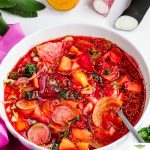
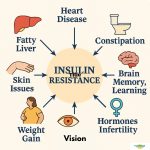
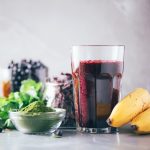
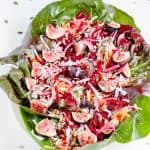

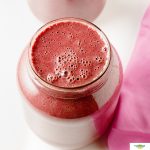

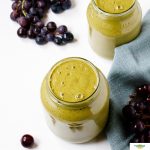
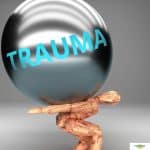
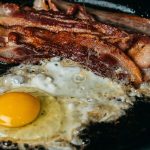
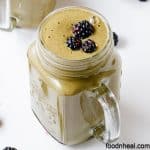




Comments
No Comments